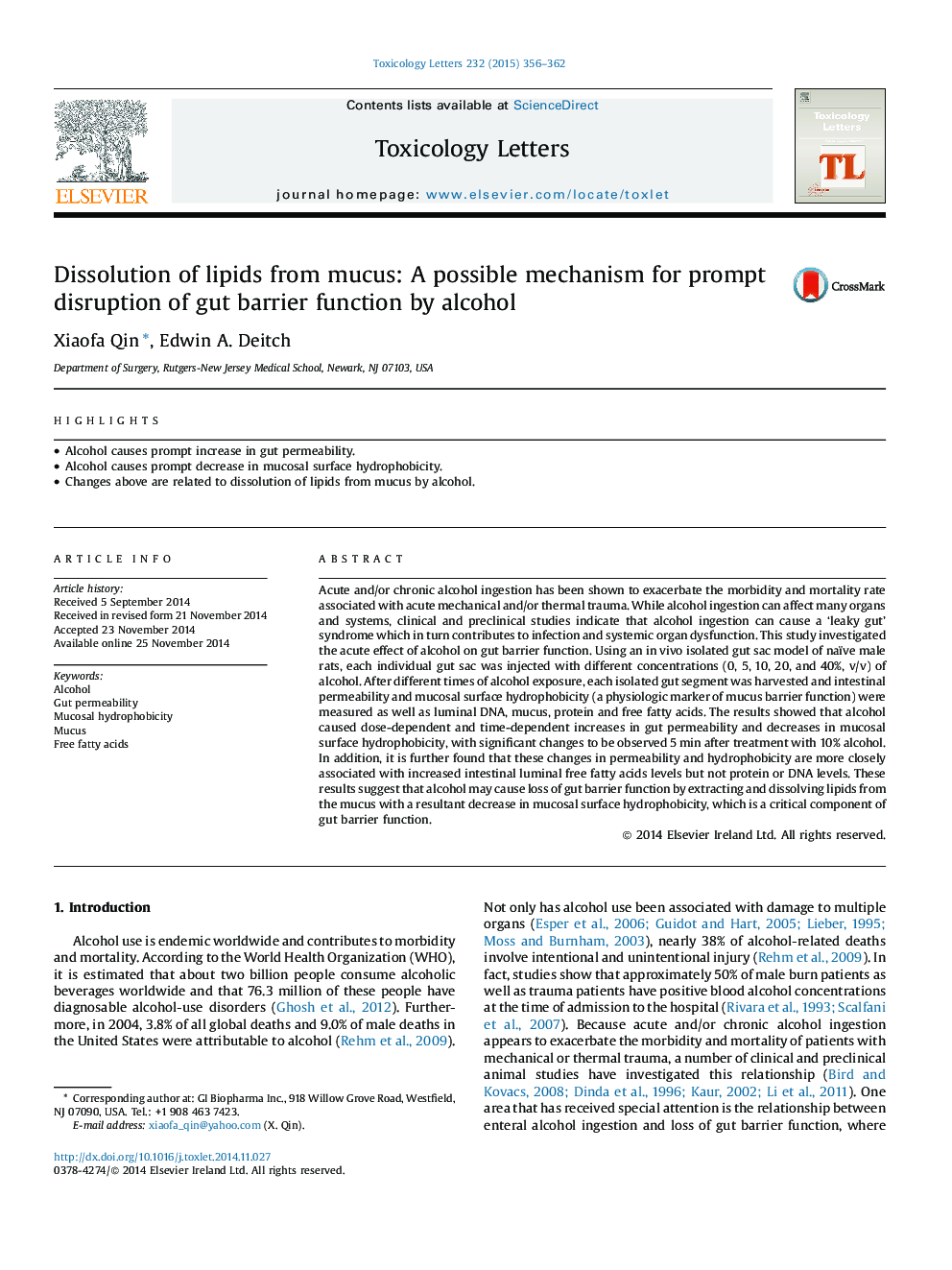| Article ID | Journal | Published Year | Pages | File Type |
|---|---|---|---|---|
| 5859977 | Toxicology Letters | 2015 | 7 Pages |
â¢Alcohol causes prompt increase in gut permeability.â¢Alcohol causes prompt decrease in mucosal surface hydrophobicity.â¢Changes above are related to dissolution of lipids from mucus by alcohol.
Acute and/or chronic alcohol ingestion has been shown to exacerbate the morbidity and mortality rate associated with acute mechanical and/or thermal trauma. While alcohol ingestion can affect many organs and systems, clinical and preclinical studies indicate that alcohol ingestion can cause a 'leaky gut' syndrome which in turn contributes to infection and systemic organ dysfunction. This study investigated the acute effect of alcohol on gut barrier function. Using an in vivo isolated gut sac model of naïve male rats, each individual gut sac was injected with different concentrations (0, 5, 10, 20, and 40%, v/v) of alcohol. After different times of alcohol exposure, each isolated gut segment was harvested and intestinal permeability and mucosal surface hydrophobicity (a physiologic marker of mucus barrier function) were measured as well as luminal DNA, mucus, protein and free fatty acids. The results showed that alcohol caused dose-dependent and time-dependent increases in gut permeability and decreases in mucosal surface hydrophobicity, with significant changes to be observed 5Â min after treatment with 10% alcohol. In addition, it is further found that these changes in permeability and hydrophobicity are more closely associated with increased intestinal luminal free fatty acids levels but not protein or DNA levels. These results suggest that alcohol may cause loss of gut barrier function by extracting and dissolving lipids from the mucus with a resultant decrease in mucosal surface hydrophobicity, which is a critical component of gut barrier function.
